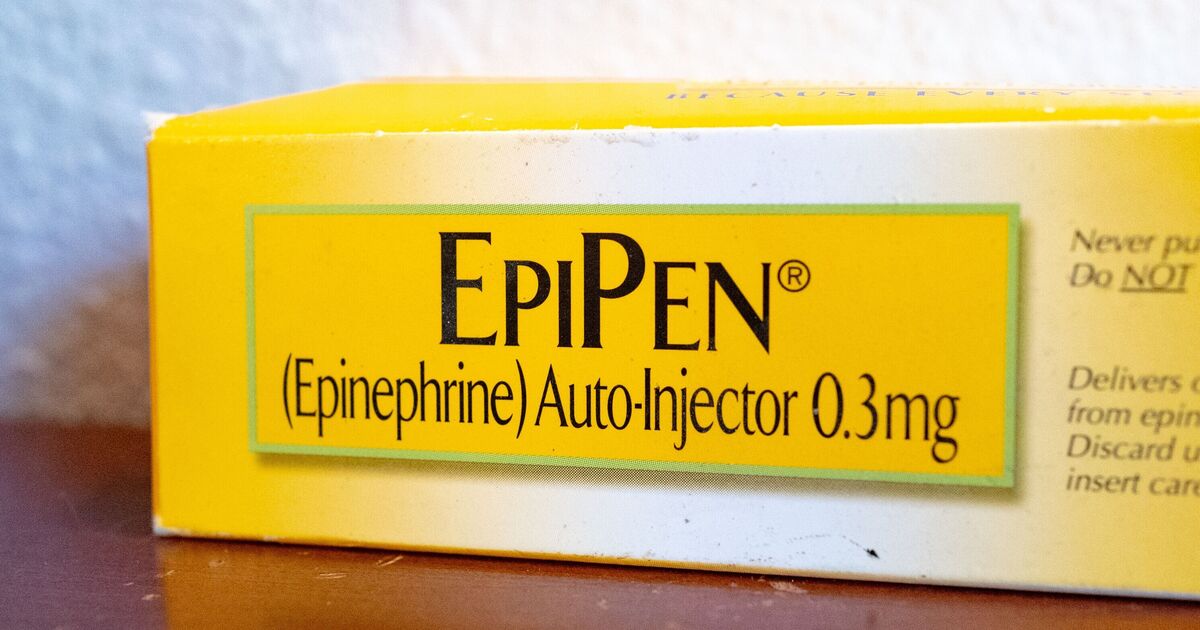People who carry EpiPens have been warned of a potentially lethal ‘malfunction’ that is easily preventable. Dr Bhavini Shah, GP at LloydsPharmacy Online Doctor, explained how EpiPens must be stored correctly to avoid a life-threatening situation.
An EpiPen is a brand of adrenaline pen, designed to administer life-saving medicine to someone suffering with a severe allergic reaction also known as anaphylaxis. If you have been prescribed an EpiPen, you’ll know how it is vital that to carry two of them with you at all times.
People who might need to carry an Epipen are those with severe allergies. Common anaphylaxis triggers include food allergies such as nut allergies, shellfish, milk and wheat or insect stings from mosquitoes, bees or wasps (Hymenoptera hypersensitivity).
You should only use an EpiPen if you can recognise that you are experiencing symptoms of a severe allergic reaction (anaphylaxis). Symptoms of anaphylaxis happen very quickly – they usually start within minutes of coming into contact with something you’re allergic to, such as food, medicine or an insect sting.
Typical symptoms include tingling and swelling of the lips, eyes and face, itching and skin rash, tightening of the throat and difficulty breathing. Another sign is blue, grey or pale skin, lips or tongue that feel cold to the touch. If you have darker skin, this may be easier to see on the palms of your hands or soles of your feet.
Perhaps the most important part of EpiPen storage is accessibility. If you are in an emergency situation, your EpiPen must be easily accessible. If you are away from home, everyone you are with should be aware of your allergy and the location of the EpiPen at all times.
It is crucial to store EpiPens correctly to ensure that they are working properly. Storing an EpiPen improperly can affect its effectiveness and safety.
All Epipens contain epinephrine (also known as adrenaline) and each auto-injector provides a single dose of the medication. If an epinephrine auto-injector is left in the car during a hot summer day or a cold winter night, the epinephrine may become degraded and no longer reliable.
If you’re away from home, then take precautions to carry your EpiPen appropriately. To avoid extreme temperatures, you should carry your medication in an insulated protective case.
It’s important that Epipens are stored in a dark place whether that’s at home or when you’re out and about. UV exposure can cause the epinephrine in the EpiPen to degrade. So think carefully about your storage, although keeping them on the kitchen side may be accessible, it may be harmful to the contents.
Epipens should be stored at room temperature. If you are on holiday, or at the beach, long term exposure to warmer temperatures may affect the effectiveness of the ingredients.
High temperatures can cause the epinephrine to oxidise and may cause it to degrade more quickly. The same applies for cooler environments, if the epipen is exposed to freezing temperatures. This could cause the liquid inside to freeze.
Avoid exposing EpiPens to moisture. The outside of the carrier tube provides some protection from moisture but it’s best to keep them in a dry place to avoid any contamination.
If you are concerned that an Epipen has been stored improperly, you should check the device’s window. If the solution is discoloured, cloudy or contains particles, then it shouldn’t be used.
If the Epipen has been exposed to extreme temperatures for a prolonged period, then it is safest to replace it even if there are no visible signs of damage. You should consult with your GP or pharmacist for advice if needed.










